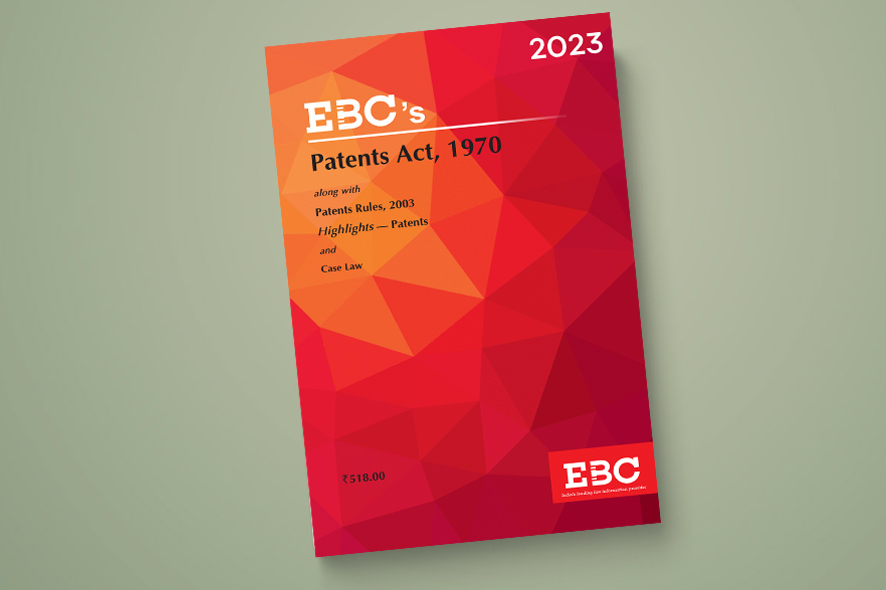Delhi High Court: An appeal was filed challenging refusal of the Indian Patent Application (‘subject patent application’) which involves formulation of a probiotic bacterium, specifically the strain of Bifidobacterium longum by the Assistant Controller of Patents and Designs (‘Controller’) under Section 15 of the Patent Act, 1970 by the impugned order dated 27-11-2018. Sanjeev Narula, J., sets aside the impugned order, remanded the matter to the respondents for a fresh consideration and restored the patent application number.
The case revolves around the patent application for Bifidobacterium longum strain claimed to offer significant therapeutic advancements over existing probiotic strains, particularly in cytokine modulation and gastrointestinal health benefits. Initially, the application sought to patent the strain itself but was later amended to claim a specific formulation of the strain. This formulation was asserted to possess unique immunomodulatory properties, offering improved efficacy and safety in treating various inflammatory and mental health conditions. The claimed strain demonstrated a distinctive cytokine secretion pattern, specifically lower levels of IL-12, IFNγ, and IL-6, which purportedly translated to better clinical outcomes in treating conditions like ulcerative colitis.
The Controller of Patents rejected the patent application on grounds of lack of inventive step under Section 2(1)(ja) of the Patent Act, suggesting that the claimed invention was obvious to a person skilled in the art based on prior art documents. Disagreeing with this decision, the Appellant filed an appeal, arguing that the unique properties of their strain, particularly in cytokine modulation, were not obvious from the cited prior arts and represented a significant technical advancement. This appeal sought to overturn the Controller’s decision and secure the patent for their formulation.
Counsel for the appellant argued that the strain showed significantly lower levels of IL-12, IFNγ, and IL-6 compared to the closest prior art. This modulation of cytokine levels provided enhanced anti-inflammatory efficacy and safety. They highlighted that the prior arts did not disclose a formulation involving Bifidobacterium longum or suggest the specific therapeutic benefits it demonstrated. It was further emphasized that different strains of Bifidobacterium longum exhibit varying therapeutic effects, as shown in prior art D4, the appellant underscored the non-obvious nature of their specific strain’s benefits. Additionally, they cited previous judicial decisions emphasizing the need for a detailed and reasoned analysis by the Controller when rejecting a patent application, which they argued was lacking in the impugned order.
The Court undertook a comprehensive analysis of the case and noted that while both the claimed strain and the prior art strain had similar cytokine patterns for many cytokines, the subject strain uniquely showed lower levels of IL-12, IFNγ, and IL-6, suggesting a distinct therapeutic advantage. The Court found that D2, which focused on different aspects, and D3, which focused on Bifidobacterium lactis, were irrelevant to the claimed strain. D4 emphasized the variability among Bifidobacterium longum strains, reinforcing the uniqueness of the Appellant’s strain, while D5 studied different Bifidobacterium strains, further distinguishing the claimed strain’s unique properties.
The Court evaluated the concept of an inventive step as defined in Section 2(1)(ja) of the Patent Act and various judicial interpretations, concluding that the Controller’s decision lacked a detailed analysis of why the invention would be obvious to a skilled person. The Court emphasized the need for a clear and logical progression from prior art to the claimed invention, which was not demonstrated in this case. The Court directed a re-evaluation of the novelty of the claimed formulation, particularly considering whether the formulation constituted an invention or merely a repackaging of known elements. It also directed the Controller to assess if the claims related to a second medical use of the strain and if such claims are permissible under the relevant guidelines and the Act.
Thus, the Court set aside the impugned order dated 27-11-2018, and remanded the matter for fresh consideration. The patent application was restored to its original number. The Controller was instructed to grant a hearing to the Appellant and issue a notice clearly delineating the objections. Specifically, the Controller was directed to address the novelty of the Bifidobacterium longum strain and the claimed formulation, whether the claimed formulation involves a specific dosage or method of administration responsible for technical advancement, and whether the claims pertain to a second medical use and if such claims are permissible. The final decision was to be rendered within four months from the conclusion of the hearing.
[Alimentary Health Limited v. Controller of Patents and Designs, 2024 SCC OnLine Del 3473, decided on 14-05-2024]
Advocates who appeared in this case :
Mr. Hari Subramanium and Mr. Sanuj Das, Advocates for appellants
Mr. Harish Vaidyanathan Shankar, CGSC with Mr. Srish Kumar Mishra, Mr. Alexander Mathai Paikaday and Mr. Krishnan V., Advocates for respondents








